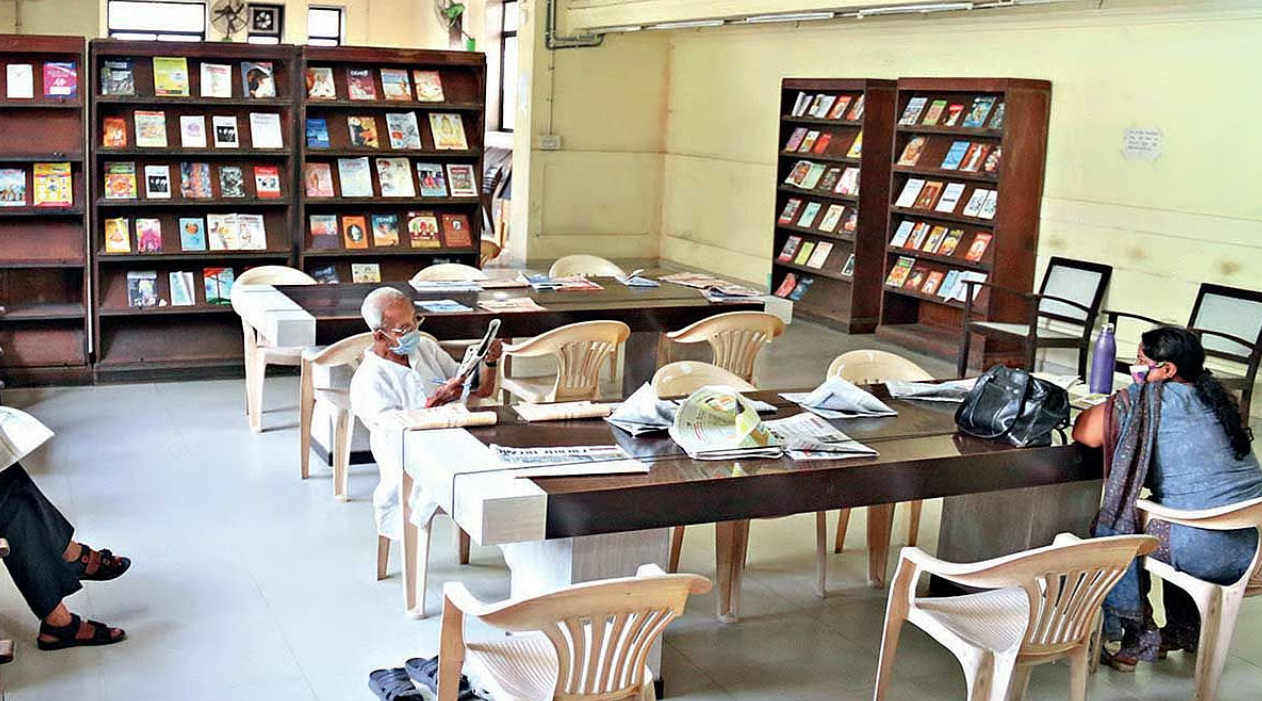Ahmedabad Street Libraries – Where Tea Meets Tales
Ahmedabad, known for its bustling streets, historic heritage, and love for chai, is witnessing a quiet yet heartwarming transformation of street libraries. These small, open-access book corners, often set up next to popular tea stalls, are winning over regular customers who now find themselves reaching for a book as often as they reach for their steaming cup of tea.
Over the past year, several neighborhoods in Ahmedabad, from Law Garden to Maninagar, from Navrangpura to Vastrapur, have embraced this unique concept, blending two of India’s greatest cultural loves: chai and stories.

How the Concept Started
The idea of street libraries at tea stalls was initiated by local reading clubs and NGOs like Read Ahmedabad and Words on Wheels. Inspired by the Little Free Library movement in the West, the goal was simple bring books to where people gather daily.
Tea stalls were the perfect choice:
- They are community meeting points.
- They attract people across age groups and backgrounds.
- They have a relaxed atmosphere, ideal for reading.
The first pilot library was set up near a popular chai stall at CG Road in late 2023. Within weeks, customers began borrowing books, discussing stories over tea, and even donating their old novels.
How It Works
The street library system is beautifully simple:
- Open Shelves: A small wooden or metal rack stocked with books in Gujarati, Hindi, and English.
- Free Access: Anyone can borrow a book without registration.
- Give & Take Policy: Readers are encouraged to return the book or replace it with another.
- Community Driven: Locals, schools, and donors regularly add new titles.
Genres range from Premchand classics to Chetan Bhagat novels, from self-help to children’s picture books. Some stalls even have a small poetry section for those who want a quick, soulful read.

Why Tea Stall Regulars Love It
For decades, Ahmedabad’s tea stalls have been more than just beverage stops; they are spaces for debate, gossip, and bonding. Now, they have gained a new identity: neighborhood reading corners.
Regulars say the experience feels “different.” Instead of scrolling on their phones, they now leaf through pages, read short stories, or engage in literary discussions with strangers.
Ramesh Patel, a retired teacher and daily chai drinker, shared:
“Earlier, we only discussed cricket and politics. Now, we talk about books. It’s refreshing.”
Impact on Literacy and Culture
The street library movement is doing more than just entertaining tea stall visitors. It is:
- Encouraging Reading Habits: Especially among youth who don’t usually visit libraries.
- Bridging Language Gaps: Multilingual collections allow cross-cultural exchange.
- Promoting Second-Hand Reading: Encouraging recycling of books.
- Strengthening Communities: Conversations now go beyond routine chatter.

Interesting Facts About Ahmedabad’s Street Libraries
- The most borrowed book in 2024 was The Alchemist by Paulo Coelho.
- Some stalls organize “Chai & Poetry” evenings where locals read aloud their favorite verses.
- Donated books often come with handwritten notes, making the reading experience more personal.
- A few stalls have added QR codes linking to free audiobooks for visually impaired readers.
Future Expansion Plans
Given the positive response, the organizers plan to:
- Set up 50 more street libraries across Ahmedabad by the end of 2025.
- Collaborate with cafés, paan shops, and community halls.
- Organize weekly book clubs at tea stalls.
- Launch a “Read with Chai” festival to celebrate books and local writers.
Why This Matters
In a world dominated by screens, Ahmedabad’s street libraries are proof that the love for printed words is still alive. They blend everyday life with literature, making books accessible to everyone without formalities or memberships. And perhaps the sweetest part? You can enjoy your favorite story while sipping your favorite chai.
Next time you visit a tea stall in Ahmedabad, look for the street library rack. Pick a book, sip your chai, and be part of the reading revolution. If you have books to spare, donate them; your book might just change someone’s day.
This is not just about books or chai, it’s about reclaiming community spaces for learning, laughter, and shared stories.